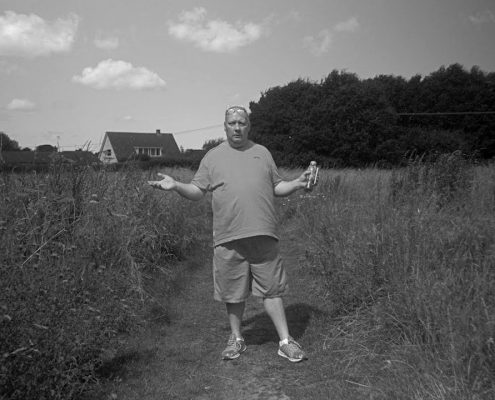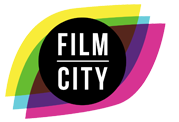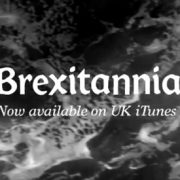BREXITANNIA: Film Review
With headlines of chaos encircling Brexit negotiations, we’re still simmering in the wake of a vote that aggressively divided our nation; families, friends, generations, classes and industries, all cut clean with a line down the middle. Leave or remain.
Interestingly, here in Brighton and Hove, 68.6 per cent of the 146,675 votes cast were remain and 31.4 per cent were leave but in the rest of the country the story was very different.
To portray the almost perfect division we witnessed on June 23 2016, director/producer Timothy George Kelly took the initiative of artistically capturing our nations post-referendum voice on film, in a documentary style with an art-house polish, Brexitannia.
Shown in Brighton at Dukes Komedia this autumn, Brexitannia is touring picturehouses nationwide as the first documentary-feature film about Brexit.
Produced in black and white square format, the film immediately concentrates the viewers eye to an important focal point – with subject matter and dialogue taking the forefront, this is a film that’s first and foremost about the voice of the people it candidly captures.
A political, social portrait on a movement that shocked the world.

Part 1: ‘The People’
The two-part film begins with a still of an untouched polling card, empty boxes for leave or remain, foreshadowing the films atmosphere henceforth, that’s open to interpretation while utilising the freedom of speech in perhaps it’s purest form; politically.
There’s a definitive feeling of ‘don’t be scared to say what you think’ from the first few words of a northern lady sitting in her back garden against the backdrop of a washing line, explaining why she voted leave.
Her decision was made on the basis of the EU’s guidelines of misshapen cucumbers.
Which, kudos to Kelly, goes on to become a visual-reference throughout the film, montaging itself to give emphasis on the diversity of motivations behind the vote.
Could something as small as a cucumber have impacted modern history? A question that’s reflected throughout the film, relating to Kelly’s motives of exploring the confusing logic behind Brexit.
Snapshot portraits of taxi drivers, stay-at-home mums, artists, publicans, students, builders, grandmothers, have their say, short or long, large or small, leave or remain, educated or not, a fair and even portrayal of our country’s general opinion on our decision to leave the European Union and what it means to be British.
Discussion swiftly moves on to what feels like the ‘bigger picture’, an underlining question of immigration and racism. One of two baby-boom-generational-men sat in a British boozer confidently suggests ‘I’m not racist by the way but British is this colour’ he says, while pinching the white of his forearm.
The interviews flow like conversation, moving naturally into topics of border control, refugees, nationality identity crisis, globalisation, import/export, education and housing.
Rather fittingly, towards the end of Part 1, conversation turns to the end of the world, a biblical philosophy with a quote from an Evangelical Christian suggesting that the separation of united countries could be the beginning of the end. Cue operatic music and some visuals of the London skyline ready for…
Part 2: ‘The experts’
While ‘The people’ was filmed with space to interpret honest opinions and out-loud thought processes, the composition and narrative becomes serious for the significantly shorter part of this documentary.
Up-close and personal frames of experts such as philosopher and social critic Naom Chomsky and globalisation and human migration sociologist Saskia Sassen.
They elegantly take us through an analysis of why the vote happened and of it’s expected repercussions with hints of Brexit being a cry for help, a consequence of neoliberalism with a one-way ticket to a capitalist country and suggestions of Murdoch’s frustration with Brussels to have been a major part of the shift.
It was followed by a Q&A with the director and Professor Martin Evans, of European History at the University of Sussex, opening with “What is striking, is the confidence of which a lot of people express their feelings but also the intimate settings you (Mr. Kelly) positioned them in.”
Nicola Morrison – Brighton Journalist Works








Great review. Captures the film perfectly and informatively.